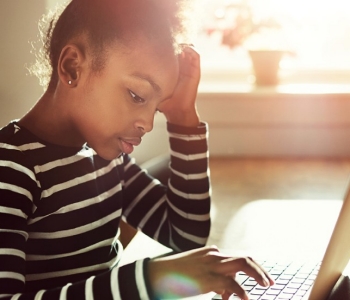How Playtime Will Set Your Girl Up for Success

You've likely heard the laundry list of skills and experiences your daughter could benefit from having outside the classroom. Many of those suggestions are solid and will help her academically (she will be better off if she reads at home!), but there’s one majorly important experience that often gets left off these lists: Playtime.
We’re not talking structured playtime directed by adults or games with pre-determined rules. Quite the opposite! The type of playtime that your girl might most benefit from is independent, self-directed, and generally free of structure. “Studies show that play allows the neurons in a child’s brain to form new connections—and that this rewiring helps boost emotional intelligence, decision making skills, creativity and problem solving abilities,” says Girl Scouts’ developmental psychologist, Dr. Andrea Bastiani Archibald. Beyond enhancing your child’s brain development, play will also help your daughter stretch her imagination, improve her physical dexterity, experiment with negotiation, and help her discover new interests and talents. Every one of these things will give her a leg up in kindergarten and beyond.
There’s a lot of pressure to be a super hands-on parent, so it can be hard to step back and let her decide what she wants to play and how it’s going to work, either by herself or with other children on play dates or at the local park. Similarly, many children who are used to a parent’s involvement in almost everything they do may be reticent to play without a loving adult at their side. Still, a bit of awkwardness adjusting to this new way of play will pay off in the end when you see your girl becoming more independent and self-motivated. Follow these tips to ensure your daughter gets powered up by playtime:
· It might sound weird, but it can be helpful to “schedule” free, unstructured playtime for your girl where she won’t have access to technology or screens. Even an hour a day will do her good.
· Find something to keep yourself “busy.” Obviously you don’t want to be completely disengaged or unreachable in case of emergency, but reading a book or writing in a journal while your daughter is playing will give her a taste of autonomy and independence.
· Try out new spaces for free playtimes. The games and experiences she might explore at the playground are likely different from the types of play she’d engage in at your kitchen table.
· Experiment with both playtime on her own and shared play dates with other children. Learning to take turns and collaborate are two incredible benefits she can get from playtime.
“In a society that’s so focused on test scores and aptitude tests, it’s easy for playtime to get lost in the shuffle,” says Dr. Bastiani Archibald. “But this joyful and vital part of childhood is actually the most effective and meaningful way for your daughter to learn—so let the fun begin!”





